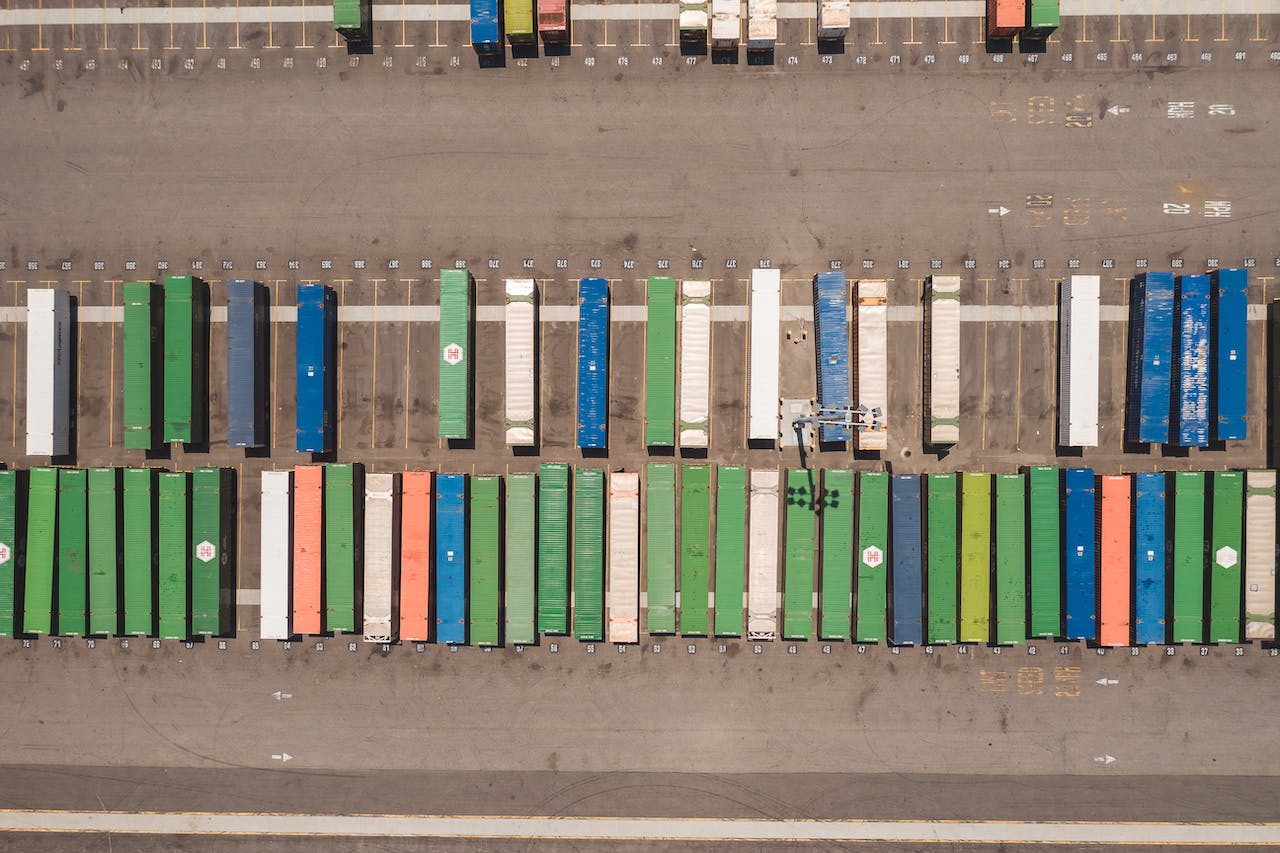Comments
- No comments found

By leveraging advanced technologies, businesses can gain better visibility and control over their supply chains.
IoT, artificial intelligence (AI), blockchain, and data analytics can help untangle the current supply chain crisis.
As consumers, we don’t often see the “invisible” supply chain – all the people and moving parts behind the simple action of clicking to buy a product and finding it on our doorstep. Yet a healthy supply chain is critical to the global economy. Single points of failure have turned the rate of processing and shipping, normally three to five days, into two weeks and beyond, according to the Wall Street Journal documentary called “Why Global Supply Chains May Never be the Same,” I learned, too, that the cost is higher than I ever imagined: $9B of goods stuck for a day, costs $400 million per hour.
In an era where supply chain disruptions are more common than ever, ensuring the smooth flow of life-saving shipments becomes paramount. Imagine being tasked with delivering critical medications from afar, only to face unexpected hurdles delaying their transit for weeks. What steps would you take?
In a recent Washington Post feature, two seasoned supply chain experts, Jayashankar M. Swaminathan and Kay Irwin, shed light on their experiences navigating such crises and their strategies to fortify supply chains for a more resilient global economy.
Dr. Swaminathan, a professor at UNC-Chapel Hill, emphasizes the crucial role of supply chain visibility. Quick pivoting during crises demands real-time data on available supplies, their locations, and how to bridge gaps efficiently. On the other hand, Kay Irwin, leading the supply chain and asset tracking practice at AT&T Business, emphasizes the role of purpose-built IoT sensors. These sensors not only track shipments but also ensure proper handling and conditions throughout the journey.
Discover their insights on leveraging technology, particularly IoT sensors and robust connectivity networks, to secure supply chains. Learn how these innovations empower businesses to track shipments meticulously, maintain ideal conditions, and guarantee timely deliveries of critical items like medications and election ballots. Click here for more insights.
Artificial intelligence plays a crucial role in predictive analytics, helping companies forecast demand, optimize inventory, and identify potential disruptions. Machine learning algorithms can analyze historical data and patterns to make accurate predictions, enabling more informed decision-making.
Blockchain technology brings transparency and traceability to the supply chain. By creating an immutable ledger of transactions, it becomes easier to track the movement of goods, verify authenticity, and ensure compliance across the entire supply network.
Data analytics, powered by real-time data streams, allows companies to monitor the entire supply chain in real-time. This proactive approach enables quick identification of bottlenecks, inefficiencies, or disruptions, facilitating rapid response and resolution.
IoT devices and sensors provide real-time monitoring of shipments, ensuring that companies can track the location, condition, and status of goods throughout the supply chain journey. This data-driven approach enhances visibility and helps in making timely interventions.
Automation technologies, including robotics and autonomous vehicles, streamline various aspects of the supply chain, reducing manual errors and enhancing efficiency. Automated warehouses, smart logistics, and autonomous delivery vehicles contribute to smoother operations.
While the supply chain crisis presents significant challenges, technology offers a range of solutions to mitigate these issues. The integration of artificial intelligence, blockchain, data analytics, IoT, and automation can collectively empower businesses to navigate the complexities of the supply chain, improving resilience and responsiveness in the face of disruptions.
Helen Yu is a Global Top 20 thought leader in 10 categories, including digital transformation, artificial intelligence, cloud computing, cybersecurity, internet of things and marketing. She is a Board Director, Fortune 500 Advisor, WSJ Best Selling & Award Winning Author, Keynote Speaker, Top 50 Women in Tech and IBM Top 10 Global Thought Leader in Digital Transformation. She is also the Founder & CEO of Tigon Advisory, a CXO-as-a-Service growth accelerator, which multiplies growth opportunities from startups to large enterprises. Helen collaborated with prestigious organizations including Intel, VMware, Salesforce, Cisco, Qualcomm, AT&T, IBM, Microsoft and Vodafone. She is also the author of Ascend Your Start-Up.
Leave your comments
Post comment as a guest